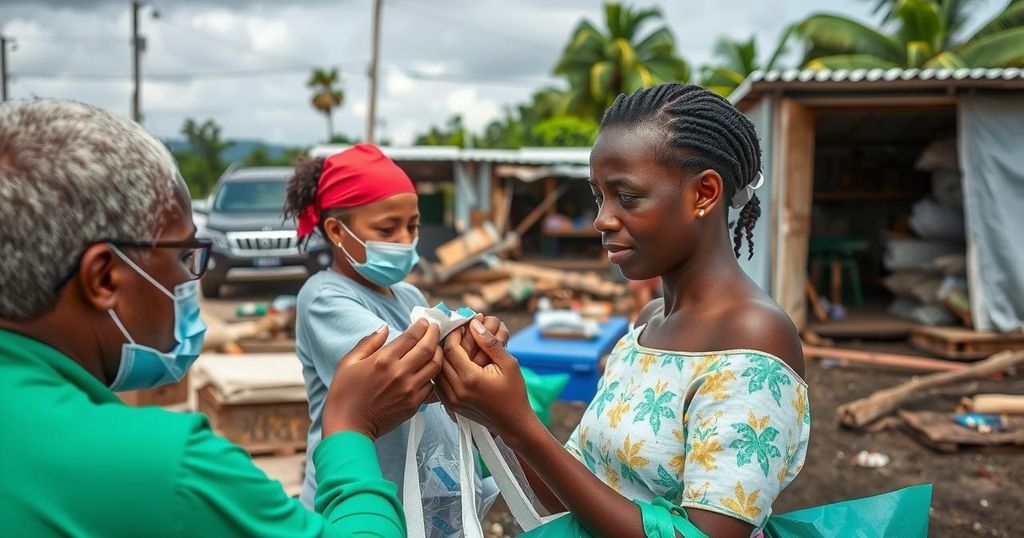France Races to Aid Mayotte Following Devastating Cyclone Chido

France is sending aid to Mayotte after Cyclone Chido caused unprecedented destruction. Fears abound that hundreds, possibly thousands, may have died. Rescue teams and supplies are being sent while officials grapple with the human toll amidst devastation.
On Monday, France dispatched aid via ships and military aircraft to the island of Mayotte, following the devastation wrought by Cyclone Chido, which has been described as the worst storm to strike the territory in nearly a century. Cyclone Chido made landfall on Saturday, tragically leading to fears that hundreds, if not thousands, of individuals may have perished. The current official death toll stands at 14, but many believe that it will take time to establish a comprehensive understanding of the human toll due to extensive destruction and disruption caused by the cyclone.
Rescue teams, medical personnel, and substantial supplies have been dispatched from both France and the nearby French territory of Réunion to assist the population of Mayotte, which numbers approximately 300,000. More than 800 additional rescue workers are anticipated to arrive as efforts to comb through the wreckage continue. François-Xavier Bieuville, the Prefect of Mayotte, indicated that the community’s informal housing structures suffered significant damage, complicating rescue and recovery operations, particularly in denser urban areas where the cyclone’s impact was most severe.
The cyclone enforced winds exceeding 220 kph (136 mph), rendering it a Category 4 storm. Despite Mayotte being French territory and part of the European Union, it is often considered the region’s poorest area, attracting migration from even less economically stable neighboring countries.Despite the calamity, authorities face significant challenges in accounting for the dead, primarily due to cultural practices surrounding burial and the presence of numerous undocumented migrants residing on the island. As recovery operations unfold, the immediate focus remains on providing essential aid and services to the impacted communities.
Cyclone Chido, which significantly impacted Mayotte, is part of a broader trend concerning the increasing frequency and intensity of tropical storms in the southwestern Indian Ocean. Given that the cyclone season stretches from December through March, regions like Mayotte, Mozambique, and surrounding islands have experienced consecutive disasters in recent years. The humanitarian implications are pronounced, particularly in impoverished territories where resources are limited, and the population is vulnerable to displacement and health crises following natural disasters. The presence of undocumented migrants in Mayotte creates further complications for emergency response and recovery efforts, as these individuals are often unaccounted for in official statistics.
In conclusion, the devastating impact of Cyclone Chido on Mayotte has prompted an urgent humanitarian response from the French government. With reports indicating potential casualties in the hundreds or thousands, the full extent of the tragedy is still being evaluated. The island’s precarious infrastructure and socio-economic conditions exacerbate the challenges faced by authorities as they work to provide essential aid and support to the affected population. Continuous monitoring and international assistance may be necessary as the recovery process begins.
Original Source: ny1.com






